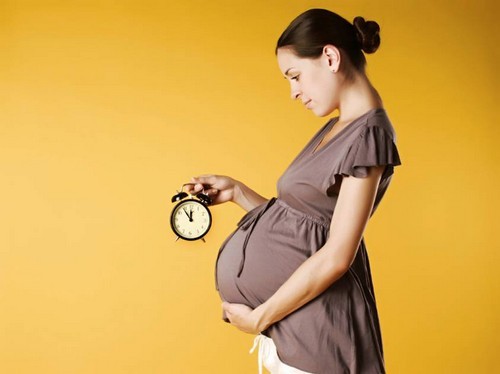Each pregnant woman is given 40 exciting weeks by nature, 9 long months to feel the magic of the birth of a new life and prepare to accept such a valuable gift.
A significant part of this time, her life continues to go according to the usual and measured mode: home-work-home, only occasionally a visit to the antenatal clinic and, as necessary, specialist doctors wedges in.
The first important stage in the life of a pregnant woman is marked by the onset of maternity leave – this is a very special phenomenon, prescribed in labor legislation, which causes the greatest interest and causes a lot of questions: when, how, why and why? In this article you will find answers to all your questions.
How many?
Any vacation has a clear time limit. Expectant mother, depending on the number of children born, receives a vacation of 140 days for a single pregnancy and 194 for a multiple pregnancy. In the case of complicated births in a single pregnancy, the duration of the leave is extended by 16 days.
Granted leave is divided into two periods: prenatal and postnatal leave. The estimated delivery date is taken for the estimated date, from which 70 or 84 days in the prenatal period and 70 or 110 in the postpartum period are counted.

What for?
Prenatal leave is given in order for a woman to accumulate strength for delivery, and also to exclude the likelihood of premature birth as a result of overwork. Postpartum leave should give a woman time to restore the body, mastering a new social role.
When?
10 or 12 weeks before giving birth – depending on how many children the mother carries. This issue must be discussed with the doctor conducting the pregnancy, and preferably in advance – in 5 months (20-22 weeks) it will be time. The reason for such an early clarification is paid leave guaranteed by Article 122 of the Labor Code of the Russian Federation, which is used by a pregnant woman before going on maternity leave or immediately after it.
How?
On the first day of the vacation, which was appointed by the doctor conducting the pregnancy, the maternity ward is written out in the maternity ward for the expectant mother with the dates of the beginning and end of the vacation. The issued certificate of incapacity for work is provided to the employer, while the pregnant employee writes an application for maternity leave. In the case of complicated births, the medical organization issues an additional sick leave for 16 days, which is the basis for extending maternity leave with the obligatory payment of the corresponding allowance.
If the birth is premature according to the law, the duration of maternity leave is not reduced, the payment of benefits is also carried out for the entire period.
It is worth paying attention to a situation where during the whole pregnancy a woman did not attend a antenatal clinic, and the first contact with a medical organization took place later than the statutory deadline for starting a vacation (30 or 28 weeks) or even during childbirth itself. In such cases, a sick leave certificate is issued on the day a woman contacts a medical organization, the basis for its issuance is the decision of the clinical expert commission, and those same 30 or 28 weeks serve as the start date of the vacation. A sloppy parent will have to explain the reasons for the late appeal for medical care, which will be included in the relevant documentation.
Who will go on vacation?
The following categories of women may go on maternity leave:
- working under an employment contract;
- dismissed from the place of work in connection with the liquidation of the organization – within a year from the date of dismissal;
- dismissed from work – within a month from the date of dismissal;
- expectant mothers on parental leave up to 1.5 years old – with the right to choose their preferred allowance;
- the adopter of the newborn baby has the right to paid 70 days of leave – from the date of birth of the child, with the adoption of two or more children, the leave is extended to 110 days.

What about work?
Desperate workaholics or pregnant women who care about the fullness of the family budget often do not want to miss the opportunity to finish the job or earn a couple more monthly salaries, which is very hindered by the issued disability certificate. If you have a great desire and, unequivocally, the opportunity to work hard during maternity leave prescribed by law, you should make sure that this does not cause any inconvenience to the pregnant employee or the employer. The conclusion of a civil law contract after arranging maternity leave will help with dignity to overcome a difficult situation.
In the case of the conclusion of such an agreement, everyone wins. The expectant mother receives the full maternity allowance, the amount honestly earned on the basis of the contract is added to it. The contract also allows a woman to work wherever and whenever – with the introduction of the relevant items. The employer is completely clean before the Social Insurance Fund and will avoid problems with the reimbursement of the paid maternity benefits, as well as extend the time of cooperation with a trusted employee.
What does the statement look like?
The application for maternity leave is written in free form. The “cap” of the application is drawn up according to the rules adopted by the employer, the date of the start and end of the vacation must be indicated in the text of the application, and at the request (or the request of the employer) the number of the sick leave is indicated. Be sure to put the date of application and signature.
What should a future mother remember
Pregnancy, by definition, is a difficult and difficult process for the body, so do not forget the main rules that will help maintain good health and give birth to a strong baby.
Expectant mother just needs:
- observe reasonable physical activity;
- the maximum allowable lifting weight is 3 kg.;
- proper nutrition;
- multivitamin intake;
- be sure to get enough sleep;
- frequent walks and a maximum of fresh air;
- try to prevent diseases;
- exclude alcohol, cigarettes and other harmful substances;
- exclude self-medication;
- strengthen intimate hygiene;
- tell about pregnancy to everyone who provides you with hairdressing and cosmetology services, as well as those who are involved in your diet or physical fitness.



